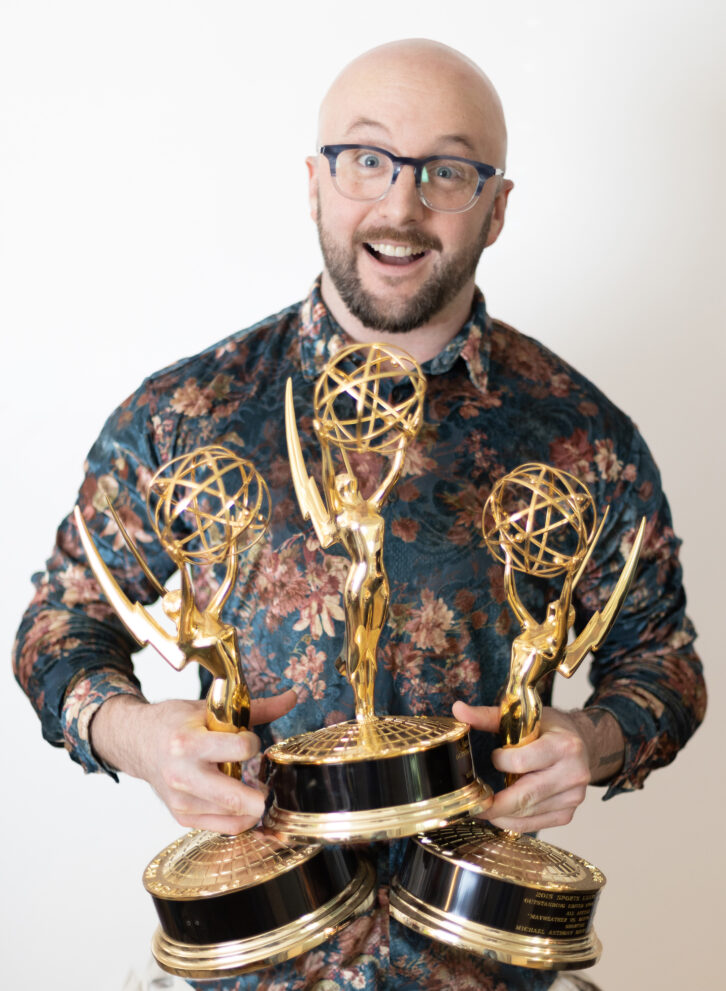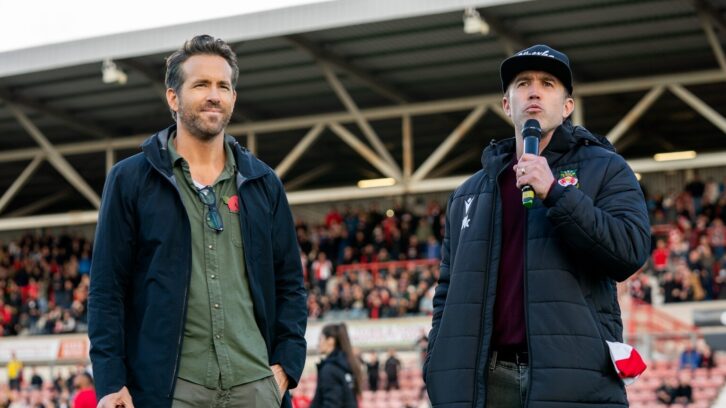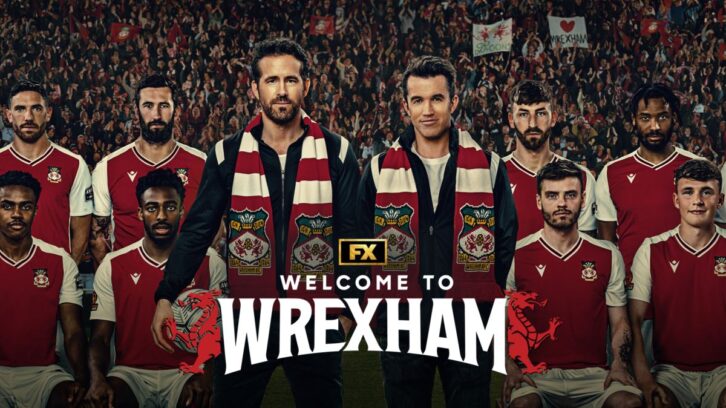Welcome to Wrexham, the Disney Plus series following the fortunes of Wrexham AFC, recently returned for its second season.
The series follows co-owners Ryan Reynolds and Rob McElhenney as well as the manager, team, and various fans.
Season one is currently nominated for six Emmy Awards, including Outstanding Picture Editing for an Unstructured Reality Programme.
TVBEurope caught up with editor Michael Brown to find out how he goes about constructing each 30-minute episode, and the technology that helps him do it.

Can you tell us about your background and how you got into editing?
I started with VHS tape editing, tape to tape at home with my parents’ VCRs and camcorder. I would ask teachers if I could make a short video on a subject instead of writing papers in high school. I thought directing was going to be my future, but the technology changed as I was learning more and I feel like I was witnessing the industry change to digital as I grew along with it and learned software. I found a joy in editing that I didn’t get from filming, the ability to match music with pictures and create emotion from those who watched.
When I was touring universities, the professors talked about an approach to teaching where all students had to learn all skills for several years before specifying a field. The technology at the universities seemed antiquated as the whole industry was moving to digital in a hurry, so I decided instead to move to Los Angeles at 18 years old in 2003. I attended and completed the Avid Certified Program, where I jumped into assisting professionally shortly after and then into editing short character segments for Texas hold ‘em poker television tournaments on FOX TV as my first real editing job in 2005.
How did you get involved with Welcome to Wrexham?
A colleague friend of mine recommended me to John Henion, the showrunner in season one. The series had been in edit for a bit of time, and it needed a fresh look. As with a lot of documentaries you have to ‘find’ the heart within the material, and luckily they chose me to come on at that time.

Are you a football fan? If so, who do you support?
Wrexham of Course! I’m up most Tuesdays and Saturdays at 6am cheering way too loudly. I love football, I am a big Barça fan as well. Having lived there for a short while in 2009 during the Messi reign, it was impossible not to fall in love with that club.
Why did you choose to cut Welcome to Wrexham on Media Composer?
The project was already set up on Media Composer when I arrived. But I would always choose Media Composer for projects. It’s just got a feel that presents the footage as the most important part of the programme. Being able to work collaboratively as well, they have had it figured out for so many years.
Why do you prefer it to other editing software?
I prefer it because I know that when I’m working on an Avid project, the team is always top notch. There’s a certain division of labour that often doesn’t come with software that claims to “do it all.” Assistants can be working in the background seamlessly, transferring to online and mix; it’s just sort of this sweet symphony that allows me to be as creative as possible. It always feels that way on Avid jobs.
How much footage are you given for each episode?
I couldn’t even begin to imagine! Each episode has at least one match, usually 7 or 8 cameras for the match alone. Pregame there are two running around, halftime there’s one in the changing room; and post match. So just the matches alone maybe 14 hours? And then scene work– probably an hour each, add interviews. Maybe 30 hours total, best guess!
How do you decide which stories to follow – how involved is the show’s producer/director in the cut?
Our field producers Miloš Balać and Patrick McGarvey get major credit for that one. They formed great relationships with the Wrexham town characters and the team. They would uncover these amazing stories, and follow them as they experienced the season’s ups and downs. It probably is a bit more organic than anything, which I think is why this series has touched so many people. It’s really real and feels that way.

What’s been the difference in terms of editing between season one and two?
On season one we had to be aware that primarily, for our American audience, we had to always remember and assume they knew nothing about Wales, football, or the EFL. It was a balance of not spending so much time over-explaining that you were removed from the story. I think we worked really hard to establish a balance of tracking the football and character development.
In season two we aren’t tracking characters over the arc of the whole season. We are introducing people more to the drama of the points chase that happened with Wrexham and Notts County, which set up a thrilling head-to-head late in the season.
We do introduce new characters but you learn about them in a more self-contained way.
What’s been your favourite episode to edit?
My favourite episode is Episode 205 Ballers. It highlights a whole separate part of the club and introduces a whole cast of new characters that will blow people away and steal their hearts.
What’s been the biggest challenge of working on the show (other than learning about football?)
The biggest challenge in season one was coordinating storylines with other episodes. I couldn’t tell part two about a character’s life if they hadn’t been introduced yet, and things at times would be very fluid. A small change can reverberate down the timeline so we had to be in constant communication with each other and at times just take a peek at earlier episodes in progress. Again, a win for Avid being so seamless with its co-working environment.
In season two I think it’s balancing the comedy and building the stakes since almost anyone who is curious can easily look up how the season ended. We really want to be value added for even the fans that know what happened.
What are you most proud of achieving?
I’m most proud of seeing the people in Wrexham who have deserved a spotlight for a long time, finally get to see themselves and their beloved team get some love from the rest of the world. Wrexham was just as unknown for me and I can’t wait to find some time and go for a visit.
I met Wayne at their US tour game vs LA Galaxy II this summer and he was even more genuine in person if you can believe that. I was honoured to buy him a beer.






